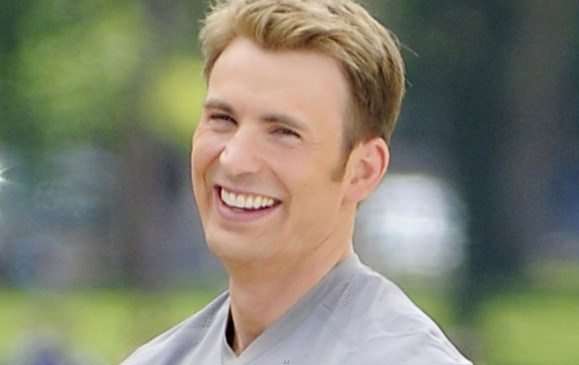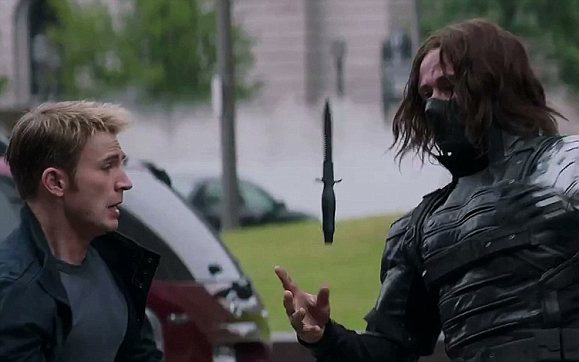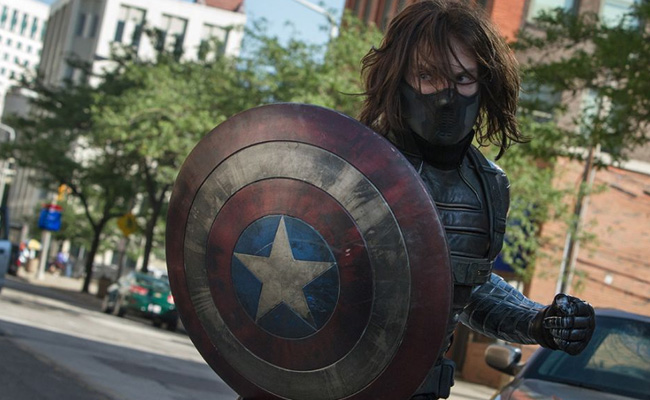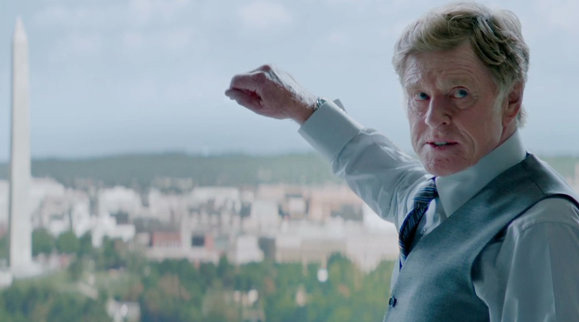So I finally caught “Captain America: The Winter Soldier,” and the long and short of it is that it’s a fun, visceral super-hero flick that I recommend. The big moments are gigantic, but the small moments are what actually make the movie as effective as it is.
Go see this movie. It’s a hoot, it has heart, it’s exactly what you want from a Marvel movie.
Oh, and stick around for the mid-credits scene and the post-credits scene. I wish the post-credits scene had been in the movie proper, but c’est la vie.
Let’s start with the non-spoilery part:
While Cap is removed completely from his WWII era milieu that worked so well in the first flick, the movie still keeps what was best – the character moments. Appropriately, the movie starts with Steve Rogers having an extremely human moment with a fellow vet, and continues to take time throughout the movie to stop and give every character a temperature check. In many ways, you see a lot of the “big characters” doing tiny things – it almost feels like “Avengers: Unplugged.”
Slightly more spoilery part (character elements):
What am I talking about? Scarlett Johansson plays Natasha Romanov in this movie, not Black Widow. In fact, she only dons the costume once, maybe twice, and spends most of the movie in a hoodie. Her primary character motivation seems to be to help Cap adjust to normal life, not “totes save the universe.”
The much-hyped Falcon, for instance, spends most of the movie out of the wings, and he’s improved for it. You get to find out what kind of music Nick Fury likes, and how he handles problems when superheroes aren’t around – the man gets like a ten-minute action scene all to himself, with no interference from any other characters.
Cap himself, of course, gets plenty of moments. His “ha ha, I’m out of touch” reactions to new things and movie references worked perfectly in Avengers – he’s a legitimately self-deprecating person, of course, but he was also completely overwhelmed by new stimuli and these larger-than-life teammates. In “Avengers,” Steve just threw up his hands and was like, “Yeah, I don’t know anything. Let’s get the job done.” “Captain America: Winter Soldier” shows what it looks like 6 months after – the “haha, oh well” reaction has become something almost like bitterness. Witness his reaction to Natasha’s movie reference:
Natasha: “‘Would you like to play a game?’ That’s from a movie – ”
Cap (annoyed): “Yeah, I know, I’ve seen it.”
Steve is trying desperately to catch up: his “list of stuff to find out” might seem like it was lifted directly from “Austin Powers,” but it’s delivered so humanly, so earnestly, and so unarrogantly that it works perfectly. A lot of credit goes to Chris Evans – playing a perfect upstanding hero isn’t easy (read, most Superman movies), but Evans always makes it look like a “boy striving to do what’s right,” not a “man who is flawless.”

Pro / Cons List (REALLY Spoilery Part):
Pro: The early ship-raiding action sequence is great, brutal and surprisingly real. It’s probably the closest we’ll get to a Metal Gear Solid movie, just in that scene.
Pro: Cap spends about ten minutes beating up Frenchmen.
Pro: The Batroc / Cap fight is rad, primarily because of choreography, but secondarily because it doesn’t look like the cameraman is being tazed while filming it.
Pro: Falcon / Sam Wilson is a great audience surrogate and an enjoyable character, but my favorite thing is how his “Falcon-ness” is introduced. Instead of belaboring some tedious and unnecessary origin story, he just says “Yeah, I use Army-designed bird wings all the time” and Cap’s like “cool.”
Pro: The Winter Soldier is terrifying. Every time he appears on camera, the movie actually warps from a taut political thriller/superhero flick into a horror movie. The soundtrack even agrees – his appearance and actions are punctuated by metallic tearing noises and inhuman screaming mixed like music. Though Winter Soldier is scarier, Bane in “Dark Knight Rises” pulled a similar trick: their appearance in a scene is like gravity, in that everything gets pulled into them. The scene becomes about them, and they are such a threat that the movie almost convinces you they might beat the good guy. The scene of him hunting Steve and Natasha in the streets as they hide behind cars is literally nail-biting. Nails will be bitten.
Pro: Chris Evans continues to pull off a difficult character with fantastic skill. In the wrong hands, Steve Rogers could be painfully boring and ridiculous, but Evans suffuses his performance with frustrated innocence and real heart.

Pro: All of the action is exciting, well-choreographed, and paced perfectly within the story.
Pro: The shout-outs are blissfully minimal – this story stands on its own, for the most part. It doesn’t try to set up a different Marvel movie, or if it does, it’s pretty sub rosa about it.
Pro: The Peggy Carter scene is pretty damn heartbreaking, and it’s a very subtle scene that doesn’t scream for drama.
Pro: All of the acting is top notch, come to think of it. ScarJo and Sam Jackson both manage to bring new dimensions to Natasha and Fury, respectively, and I hope they both remain Marvel U mainstays. Anthony Mackie makes a great Falcon, remarking on all the ridiculousness of the story with aplomb – he’s everything Shia LaBeouf was probably trying to be in Transformers.

Con: Acting exception – Robert Redford is weirdly subdued for some reason, and I’m not sure if its age, an acting choice, or director mandate. The script is clearly trying to make him a snarky and charming dick, but he comes off like a smartass who’s been tranq-darted in the neck.
Con: The Winter Soldier isn’t in it enough for the movie to be called “Winter Soldier.” Hell, the ending even suggests that the next movie will be about the “Winter Soldier” primarily, which makes me wonder why they even called the movie “The Winter Soldier?” It’s going to be odd when the third Cap movie has more Winter Soldier screen time but is called “Captain America: Revengeance” or whatever.
Con: The Winter Soldier isn’t given any context or purpose. Comic fans know what’s up, but my wife was like, “So, who’s this Winter Soldier? What is he? Why did they use Bucky? What’s his job? Why is he in the story?” Now, my wife is a ridiculously smart teacher who makes a living understanding literature and story, and if she thought his purpose in the plot was weak, your average movie goer is going to be completely baffled.
Con (the BIG one): The story falls victim to the current trend of overly-complex storylines for blockbuster movies. Frim Crit Hulk has a good essay about it here, but it’s basically the reason why “Man of Steel,” “Dark Knight Rises,” and “Star Trek Into Darkness” are much more wobbly then a stand-out great movie like “The Avengers.” In “Man of Steel,” the plot-to-stop is that Zod wants to use the baby-skull computer inside of Clark to activate the gene ship to create new genetically engineered Kryptonians (that crash landed on Earth a long time ago) while two dubstep guns increase the gravity on Earth so Kryptonians can lose all their powers(?) and rule Earth/New Krypton. In contrast, “The Avengers” is about Loki summoning aliens to attack Earth.
First, there are like six antagonists in “The Winter Soldier:” Pierce, Winter Soldier, Arnim Zola, Batroc, Hydra, and the World Security Council. That’s ridiculous. The primary “threat” is nebulous and barely explained – Hydra has infiltrated SHIELD, and wants to float new helicarriers in the sky that are designed to use a computer algorithm from Arnim Zola (who lives in a tape deck now) to target and kill people who might someday become super heroes (I think?) so that HYDRA can take over the world somehow even though they already kind of rule the word.

This doesn’t make sense for a lot of reasons – SHIELD already has helicarriers in the sky bristling with weapons. Why do you have to launch new ones? Can’t they just take over the old ones? How will murdering a bunch of seemingly innocent people not be met with immediate attack on SHIELD by society at large?
The big question is: Why is HYDRA doing anything? HYDRA has basically already won – they’ve infiltrated SHIELD so thoroughly that Fury even admits that SHIELD basically can’t be recovered. They’ve infiltrated the World Security Council (whatever that is) – in fact, their leader is the head of HYDRA. Why create a giant show of public massacre that will thoroughly oust them and obviously lead to their defeat on the world stage when they could just cruise along shaping the world how they want to? HYDRA tries to kill Nick Fury on a public street with cops and rocket launchers. Why not just poison his HYDRA/SHIELD coffee with a well-placed HYDRA/SHIELD intern?
The “helicarrier murder spree” concept also ruins their message. The filmmakers obviously wanted to draw the freedom-vs-security comparison (which is a great thing to discuss in a Captain America movie), but the metaphor gets broken by the Helicarriers’ mission to kill a bunch of people. That’s not freedom or security – that’s chaos for no reason, which is the opposite of HYDRA’s stated doctrine of “order.” The helicarriers going up with new technology to find everyone on the planet and track them and be able to intercept them at any time is scary enough – that’s something Captain America would want to stop, especially knowing HYDRA was behind it. Plus, it adds a nice NSA controversy parallel to the flick and makes it timely. Gluing on the mass murder plot line muddles the message, the story, and the point of the movie. Now instead of “freedom-vs-security” you get “Captain America saves all the superheroes,” which makes the rest of the movie’s theme pointless.

Plus, SHIELD is already deployed around the world to find “special” people. Wouldn’t it be smarter to find these super people and recruit them then just to straight-up kill them? Also, wouldn’t silently killing them with SHIELD/HYDRA agents one-at-a-time make more sense from a secrecy standpoint, if you were absolutely set on murder?
Also, and this is something that bugged my wife – why HYDRA again? Couldn’t they have let HYDRA breathe and introduce an unrelated villain? It would be like doing the Bane/Talia story in the second Batman film. The Winter Soldier should have been Cap’s “Joker,” to follow the metaphor, a pure character-villain for Cap to compare against. Instead, he’s shuffled off to the side for the return of the bad guys from the first movie.
So, the villain plot makes no sense, is overly complicated, and falls apart on even basic analysis. Is that bad? Yes, it’s terrible – it assumes the audience is too stupid to care, it assumes that theme is not important to a story, and it’s essentially dishonest. An audience is supposed to get lost in a movie, and verisimilitude is key. Does it ruin the movie? No.
It diminishes the movie, and its impact, and “Cap 2” doesn’t outrank the first movie because of it, but “The Winter Soldier” is still a great thrill ride and fun character story. The scenes with the eponymous “Winter Soldier” are worth the ticket price alone. Plus, you wanna know who has two thumbs and loves Captain America?


